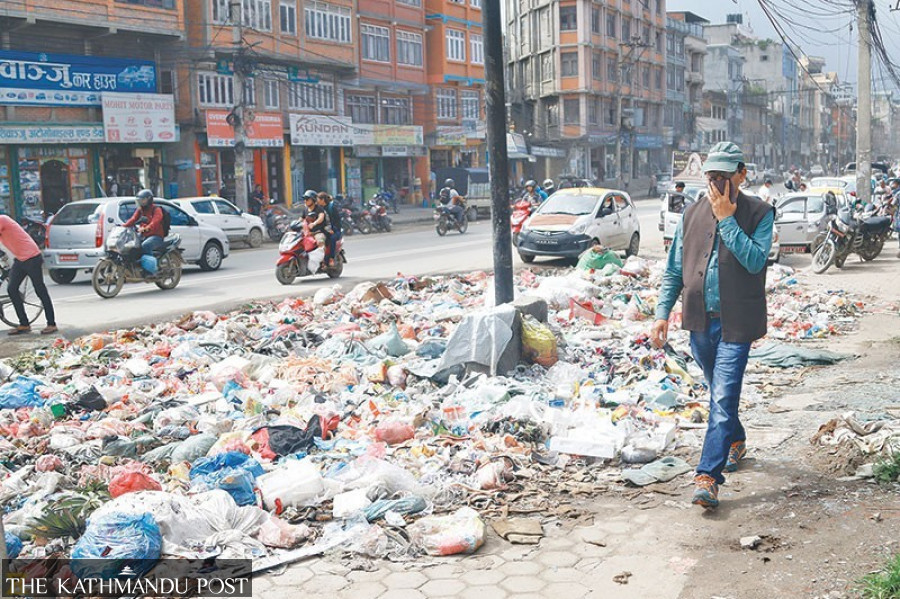Editorial
Garbage city
For a lasting solution to our waste management problem, we need to rethink what constitutes waste.
Kathmandu Mayor Bidya Sundar Shakya is not known for making sense. Four years into his tenure, he is yet to do one major work that will fortify his position as a mayor that really worked for the people. Instead, his aversion to art, culture and aesthetics, despite representing a city with a rich repertoire of tangible and intangible cultures, is pretty well known. It pains the mayor to see a work of art created by socially responsible artists so much that he swiftly sends his crew to whitewash it. But it has been weeks since heaps of garbage have started to be strewn across the city, turning it into an installation art of garbage, and the mayor is nowhere to be seen. So much for his alacrity when it comes to removing harmless art work while the city residents’ olfactory and aesthetic senses go for a toss.
But of course, we cannot single out the Kathmandu mayor when we talk about our representatives failing to fulfil the most basic of their duties. The garbage management problem is rampant across all municipalities across the country. Being the most densely populated place in the country, as well as the federal administrative centre, though, it is only natural for Kathmandu Valley to be in the eye of the storm. What is frustrating is that the garbage problem has remained the most persistent issue for decades, with generations of administrative officers and elected representatives failing to find a lasting solution. Every now and then, there are protests by locals close to the landfill sites such as Sisdol and Okharpauwa who complain about their compensation claims and health concerns being sidelined. And this time, it is the road, built on a pile of garbage, that has been damaged by monsoon rains, leaving garbage trucks unable to travel up to the dumping site.
It’s a wonder that our mayors have failed to speak of a "smart" garbage collection policy yet, given how obsessed our administrators and elected representatives love to bring up the "smart" word in everything they do. But garbage management is one area where the authorities can be a little bit smarter and bring about big changes. Change, of course, begins at home. The biggest problem facing our waste management system is our inability to inculcate in city residents the habit of segregating waste at home. As per experts, up to 75 percent of the waste we produce is biodegradable, which means that it can be managed locally. Of the waste that remains, 15 percent can be recycled while only 10 percent needs to be dumped. Segregating dry waste from wet is the simplest thing to do, but thanks to lack of awareness on the part of city residents and the inaction of the authorities, we have failed to put into practice the most fundamental policy of waste management.
And yet, here we are, residents of a cosmopolitan city, throwing our garbage out of the window onto the street in the middle of the night, and dodging the same garbage the next morning when we step out of our homes. While the lack of space at, or the severance of access to, the dumping sites is part of the problem, we must begin rethinking what constitutes waste in the first place and mend our ways.




 13.12°C Kathmandu
13.12°C Kathmandu














